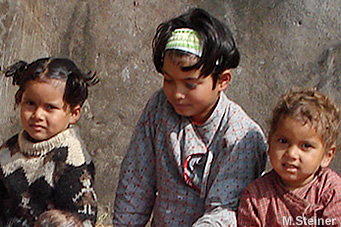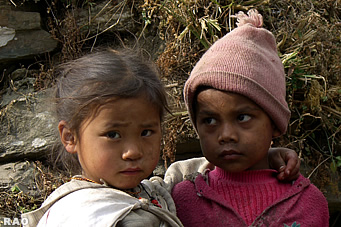| The
World Bank, the International Finance Corporation and other development
agencies are focusing on investment in the education sector as one of the
keys to reducing poverty level in Nepal. This was revealed in a report,
"Nepal: Priorities and Strategies for Education Reform" (July 18, 2001).
The
report makes the major argument that Nepal is lagging behind in improving
its labour productivity, economic growth and quality of life, because the
population has not
been
empowered to take informed decisions on a wide range activities. Compared
to the social rates of return of several other low-income countries, those
for Nepal are low,
the
report states.
The
report also says that access to primary education is still woeful, and
the quality of education received by the majority of students at all levels
in the country is unacceptably low.
Only
one in every three adults was found literate in a 1995 survey, says the
report. And in the mountain areas with its unequal distribution of public
subsidies, this figure gets far worse, with only one in four enjoying literacy.
The
WB report says only less than half of the children complete their primary
education, among whom only 10 per cent make it to class 10, and that too
after repeating several classes. As for the SLC (Student Leaving Certificate)
exam, only less than half of the students pass out, of which only 12 per
cent achieve good grades.
The
report finds that about 25 per cent of the students enrolled at the country's
central educational institution, Tribhuvan University, do not attend classes,
while only 25 per cent of the University's arts and humanities students
gain their degree in the first attempt.
The
WB research team blames the education system of not serving the labour
market well. Among the labour force in the country, 62 per cent has had
no schooling at all, and out of those who have had a school education,
most have spent only an average of 3.9 years in schools.
Both
underfunding and sloppy management have been the major reasons behind the
poor status of public education in the country, the report quotes various
groups of stakeholders as saying. It also says that the teaching staff
is highly politicised, with frequent transfer of DEOs (District Education
Officers) and frequent changes in rules and regulations. |








